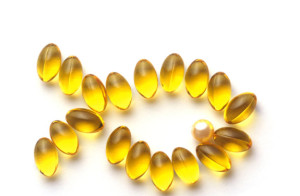Imagine it was your job to prove fish oil, one of the most beloved supplements in the industry, increased the risk of prostate cancer. How would you do it? Would you select a group of men that fit certain criteria, randomly separate them into two groups, one receiving fish oil and one receiving a sugar pill, and then follow them for 10-20 years and see if the fish oil group gets more prostate cancer than the placebo group? The results would surely leave little argument. Unfortunately, that’s not how the recent study that was portrayed in the media as “Fish oil may raise prostate cancer risks,study confirms” was done.
The Plasma Phospholipid Fatty Acids and Prostate Cancer Riskin the SELECT Trial was actually a study of a study, specifically known as a retrospective nested case controlled cohort study. They simply observed and analyzed participant data from another study called SELECT, which had an altogether different goal.
From the SELECT trial, the researchers chose 834 patients who developed prostate cancer after the trial had started in 2001. Then they chose a control group matching for age and race who did not develop prostate cancer during that trial. They looked at the baseline blood samples between the two groups, calculated the fatty acid composition, compared the results, and published the somewhat surprising results. Fish oil didn’t protect against prostate cancer. It actually increased the risk of prostate cancer. In fact, when the researchers combined their results with the results from a few studies that also came to the same conclusion, those with the highest levels of omega 3’s in their blood had a 44% increased risk for low-grade prostate cancer, a 71% increased risk for high-grade prostate cancer, and a 43% increased risk for prostate cancer in general compared to the group with the lowest level of omega 3’s in their blood. Clearly, fish oil is dangerous. Or is it?
Not exactly. The study has a few glaringly obvious weaknesses. First, it was an observational study. There was no treatment intervention. Thus, cause and effect can’t be determined definitively. Secondly, the researchers simply analyzed one blood sample from the start of the SELECT trial and calculated the omega 3 levels in the blood. Never once did they ask about fish oil consumption. And finally, the researchers used statistical methods that tend to exaggerate the true effect. A closer look at the results from just the SELECT reveal a less than impressive conclusion. The mean percentage of total omega 3’s in the no cancer group was 4.48 versus 4.66 in overall prostate cancer group, a difference of 0.18, which may have been statistically significant, but not necessarily clinically significant. So obviously, with as many weaknesses as this study has, we should ignore it. Not so fast.
The results of this observational study should spur further questions and research, not definitive answers. As of now, it’s just an observational relationship. Nothing less. Nothing more.





Speak Your Mind